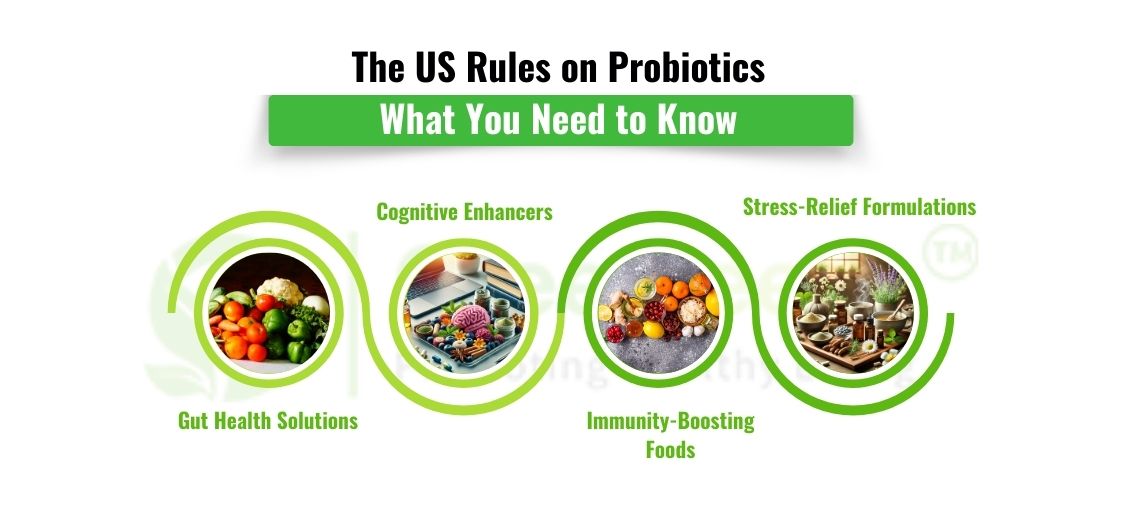
In an era where you are what you eat resonates more than ever, personalized nutrition is reshaping the food and beverage landscape. With consumers seeking tailored solutions for their unique health needs, the demand for clean label ingredients, herbal ingredients, and innovative functional foods is on the rise. This blog delves into how the convergence of customization, health priorities, and ingredient innovation is redefining the future of nutrition.
Gone are the days of one-size-fits-all dietary guidelines. Consumers are increasingly aware that nutrition is personal, shaped by factors like genetics, lifestyle, and individual health goals. Personalized nutrition solutions consider these variables to create bespoke dietary experiences, addressing everything from digestive health to energy optimization and beyond.
What makes this evolution even more compelling is the emphasis on transparency and quality. Consumers today demand clean-label products—those free from artificial additives, preservatives, and unpronounceable chemicals. These preferences are pushing manufacturers to innovate, offering personalized products that not only align with health goals but also meet the high standards of ingredient clarity.
The clean-label movement isn’t just a trend—it’s a fundamental shift in consumer behavior. A 2023 study highlighted that over 60% of consumers prefer products with clear, simple ingredient lists. This shift is even more pronounced in functional foods, where consumers expect efficacy without compromising on naturalness.
For instance:
• Herbal ingredients like turmeric, ashwagandha, and ginger are prized for their health-boosting properties while maintaining clean-label status.
• Natural sweeteners like stevia and monk fruit are replacing artificial alternatives in low-calorie products.
• Plant-based protein sources, such as pea and hemp, are gaining traction for their versatility and nutritional value.
These clean-label innovations are paving the way for functional food solutions that cater to individual health goals.
Functional foods are no longer confined to niche markets. They are mainstream, appealing to health-conscious consumers who view food as medicine. Functional foods fortified with clean-label ingredients are addressing concerns like immunity, gut health, stress management, and more.

Gut Health Solutions
Probiotics and prebiotics are making waves in products like yogurts, granolas, and even beverages. Ingredients like chicory root and inulin maintain clean-label integrity while supporting digestive health.
Cognitive Enhancers
Nootropic-infused snacks and drinks are on the rise. Herbal ingredients such as ginkgo biloba and bacopa are being incorporated into clean-label formulations aimed at improving focus and memory.
Immunity-Boosting Foods
Ingredients like elderberry, echinacea, and vitamin C are becoming staples in immune-supporting functional foods, from gummies to teas.
Stress-Relief Formulations
Adaptogens like holy basil and rhodiola are being used in innovative products designed to promote relaxation and reduce stress.
The road to developing clean-label functional foods isn’t without hurdles. Manufacturers face several challenges, including:
• Balancing Taste and Functionality: Herbal ingredients, while beneficial, can have strong flavors that may not appeal to all palates.
• Ingredient Sourcing: Ensuring the purity and sustainability of clean-label ingredients can be logistically complex.
• Regulatory Hurdles: Compliance with clean-label standards and claims for functional benefits require rigorous testing and transparency.
Despite these challenges, the industry is responding with cutting-edge solutions. Advances in ingredient processing, such as cold-pressing and fermentation, are helping retain nutritional value without compromising on taste or cleanliness.
Personalization in functional foods is being fueled by technology. Tools like DNA-based nutrition profiling and wearable health devices are enabling consumers to make informed choices about their diets.
To meet these demands, manufacturers are turning to versatile herbal ingredients and clean-label innovations that allow for customization. For example:
• Customizable protein powders offer various plant-based options tailored to dietary restrictions and fitness goals.
• Functional teas can be blended with adaptogenic herbs based on stress levels or sleep quality.
These innovations highlight how clean-label and functional ingredients are at the forefront of personalization in nutrition.
The intersection of personalized nutrition, clean-label products, and functional foods represents an exciting frontier. The next wave of innovation will likely focus on:
Sustainability: Sourcing clean-label ingredients that are environmentally friendly and traceable.
Digital Integration: Leveraging AI and machine learning to recommend and even create tailored functional foods.
Cultural Inclusivity: Incorporating traditional herbal ingredients from diverse regions to cater to global markets.
The journey toward personalized nutrition is more than just a shift in dietary preferences—it’s a movement toward holistic well-being. Clean label ingredients, combined with herbal ingredients and functional food innovations, are empowering consumers to take charge of their health in meaningful ways.
For brands, this is an opportunity to lead with transparency, creativity, and a commitment to quality. By embracing these trends, manufacturers can not only meet but exceed the expectations of today’s discerning consumers.
In this transformative landscape, the possibilities are endless, but one thing is clear: the future of food is personal, purposeful, and rooted in trust.
**The Food and Drug Administration has not evaluated these statements. This product is not intended to diagnose, treat, cure, or prevent any disease.**